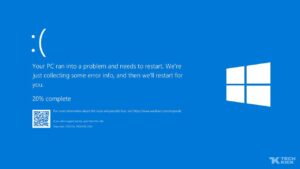Hybrid work environments have emerged as the cornerstone of modern workplace dynamics. With a blend of remote and in-office collaboration, businesses are transforming traditional models to adapt to the evolving needs of employees and the digital age. Fortunately, Microsoft offers innovative solutions to navigate the complexities of hybrid work seamlessly. In this blog, we’ll explore how Microsoft solutions can facilitate an efficient and secure hybrid work environment while addressing common challenges and foster inclusivity.
Creating a Fair and Equitable Hybrid Work Environment
An ideal hybrid work environment prioritizes fairness and inclusivity to ensure employees everywhere feel valued and empowered. Therefore, using Microsoft Teams and SharePoint will enable real-time collaboration and communication, creating a sense of belonging and minimizing bias. Businesses can then level the playing field by promoting transparency, equitable access to resources, and opportunities for remote participation.
Technology and Tools for Effective Hybrid Work
Effective hybrid work relies on robust technology and tools that ensure seamless collaboration, communication, and project management across dispersed teams. With Teams for virtual meetings, SharePoint for document collaboration, and Planner for project management, collaboration is simplified, enhancing productivity across all devices and locations. Additionally, integrating Power BI grants insights into productivity metrics and tracking the success of hybrid work programs.
Measuring Success in Hybrid Work Programs
Measuring the success of hybrid work programs requires tracking key metrics related to productivity, communication, and employee satisfaction. Microsoft’s analytics tool, Viva Insights provides valuable insights into employee behavior, collaboration patterns, and work habits. Analyzing meeting attendance, communication frequency, and task completion data helps identify areas for improvement and optimize outcomes.
Ensuring Data Security and Privacy
Data security and privacy are paramount in hybrid work environments, where sensitive information may be accessed from various locations and devices. Microsoft offers robust cybersecurity and access controls through Azure Entra ID and Microsoft Intune, ensuring data protection and compliance with regulatory requirements. Encryption, multi-factor authentication, and data loss prevention measures, further enhance security and mitigate data breach risks in hybrid work environments.
Redesigning Office Spaces for Hybrid Work
Redesigning office spaces to support hybrid work involves creating collaborative areas and focusing on specific functions that require in-person interaction. Microsoft Viva and Teams Rooms, enable businesses to create modern workspaces that blend hybrid collaboration. Moreover, optimizing workspaces might require integrating technology-enabled collaboration zones, flexible workstations, and touchless meeting rooms.
Managing Challenges of Employee Burnout and Isolation
Employee burnout and isolation are significant challenges in hybrid work environments, due to blurred boundaries between work and personal life. To address this, businesses must prioritize employee well-being and a culture of work-life balance. Microsoft Viva Insights and MyAnalytics can help employees manage their time effectively, set boundaries, and prioritize self-care. Additionally, promoting virtual social events, team-building activities, and regular check-ins can help combat feelings of isolation and foster connection among employees.
To sum it all up, businesses can create efficient and secure hybrid work environments that promote inclusivity, productivity, and well-being with Microsoft cloud solutions. Again, when determining which solution best suits your organization, its best to seek expert opinion. Trust Molaprise to provide the guidance you need.



